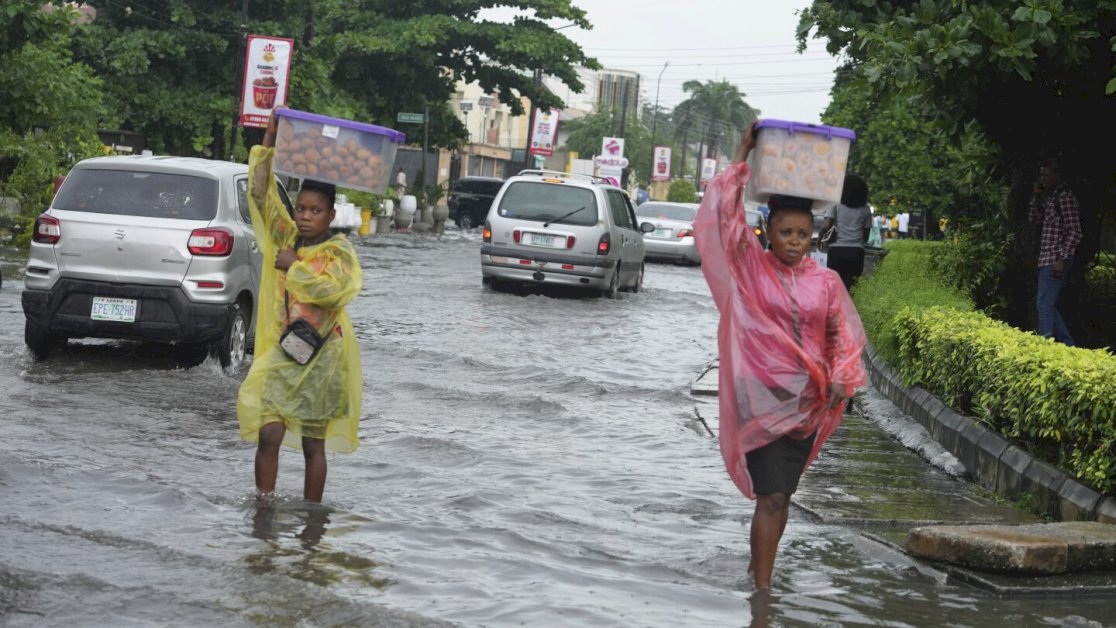The recent flooding in Nigeria has caused widespread devastation and loss of life. According to reports from the Nigerian disaster management agency, nearly 200 people have lost their lives due to this natural calamity. The floods have also destroyed more than 107,000 hectares of farmland across the country.
This situation is particularly alarming as it poses a significant threat to food supplies in Nigeria. With such extensive damage to farmland, there are concerns about how this will impact food production and distribution across the country.
The northern region has been hit especially hard by these floods. This area is already facing challenges related to poverty and food insecurity. With so much farmland destroyed by flooding, it’s likely that these issues will only worsen.
It’s important for authorities and relief organizations to take swift action in response to this crisis. Providing aid and support for those affected by the floods should be a top priority at this time.
Nigeria is currently facing a severe crisis due to weeks of devastating flooding that has resulted in significant loss of life and destruction of property. It’s crucial for all stakeholders involved – including government agencies, NGOs and international organizations -to work together towards providing relief efforts for those affected by this tragedy while also taking steps towards mitigating future risks posed by natural disasters like these ones.

How is the Nigerian government responding to the impact of the floods on food security?
Devastating Floods in Nigeria: Lives Lost and Farmland Washed Away, Sparking Food Security Fears
Flooding is not new to Nigeria, as the country is known to experience heavy rainfall every year. However, the recent spate of floods that have hit the country has been unprecedented. In 2020, several parts of Nigeria have been hit by devastating floods that have destroyed homes, businesses, and farmlands, leading to the loss of lives and sparking fears of food insecurity.
The flooding has been severe in many states across the country, with Kebbi, Niger, Kaduna, Jigawa, and Kano being the worst affected. According to the Nigerian Hydrological Services Agency (NHSA), about 102 local government areas in these states were affected by flooding.
The Impact on Lives and Property
The flooding has led to the loss of many lives and displacement of people from their homes. According to the National Emergency Management Agency, at least 123 people have been killed, and over 100,000 others have been displaced by the floods.
In addition to the loss of lives, the floods have also destroyed homes, businesses, and infrastructure. In Kano State alone, over 5,000 houses were destroyed by the floods, while in Jigawa State, more than 50,000 hectares of farmland were washed away.
The Impact on Food Security
The floods have had a devastating impact on agriculture, which is a major source of livelihood for many Nigerians. The loss of farmland and crops means that there will be a shortage of food in the affected areas, leading to food insecurity.
According to the Food and Agriculture Organization (FAO), the floods have destroyed over 60,000 hectares of farmland, which is equivalent to a potential loss of over 120,000 tons of cereal crops. This loss of crops is likely to impact the country’s food security, as prices are expected to increase due to a shortage of food.
The Way Forward
The Nigerian government has taken steps to address the impact of the floods. The government, through the National Emergency Management Agency, has provided relief materials to those affected by the floods, including food, shelter, and medical support.
In addition to providing relief materials, the government is also working on measures to mitigate the impact of future floods. The NHSA has warned that more floods are likely to occur, and the government is working to address issues such as poor drainage systems, river bank erosion, and poor land use practices.
In the long term, the government is also working on measures to improve agriculture in the affected areas. The Nigerian Agricultural Insurance Corporation is providing insurance cover for farmers, and the government is providing financial support to help farmers recover from the losses incurred due to the floods.
Conclusion
The recent spate of floods in Nigeria has been devastating, leading to loss of lives, displacement of people, and fears of food insecurity. The impact of the floods on agriculture has been severe, leading to the loss of farmland and crops and sparking fears of shortages of food.
However, the Nigerian government has taken steps to address the impact of the floods, including providing relief materials to those affected and working to address issues such as poor drainage systems and river bank erosion. In the long term, the government is also working on measures to improve agriculture in the affected areas, including providing insurance cover for farmers and financial support to help them recover from the losses incurred.All rights reserved. This material, and other digital content on this website, may not be reproduced, published, broadcast, rewritten or redistributed in whole or in part without prior express written permission from MONTAGE AFRICA.
Contact: editor@montageafrica.com



